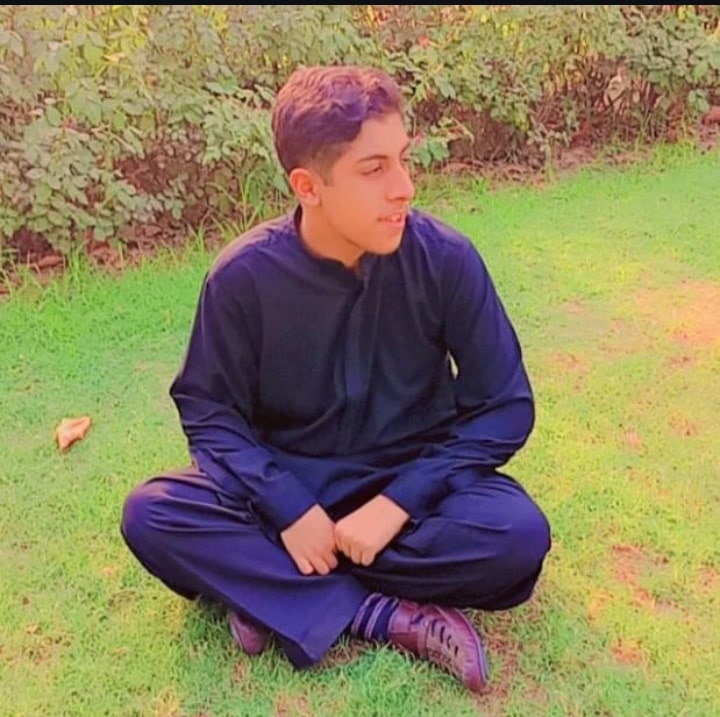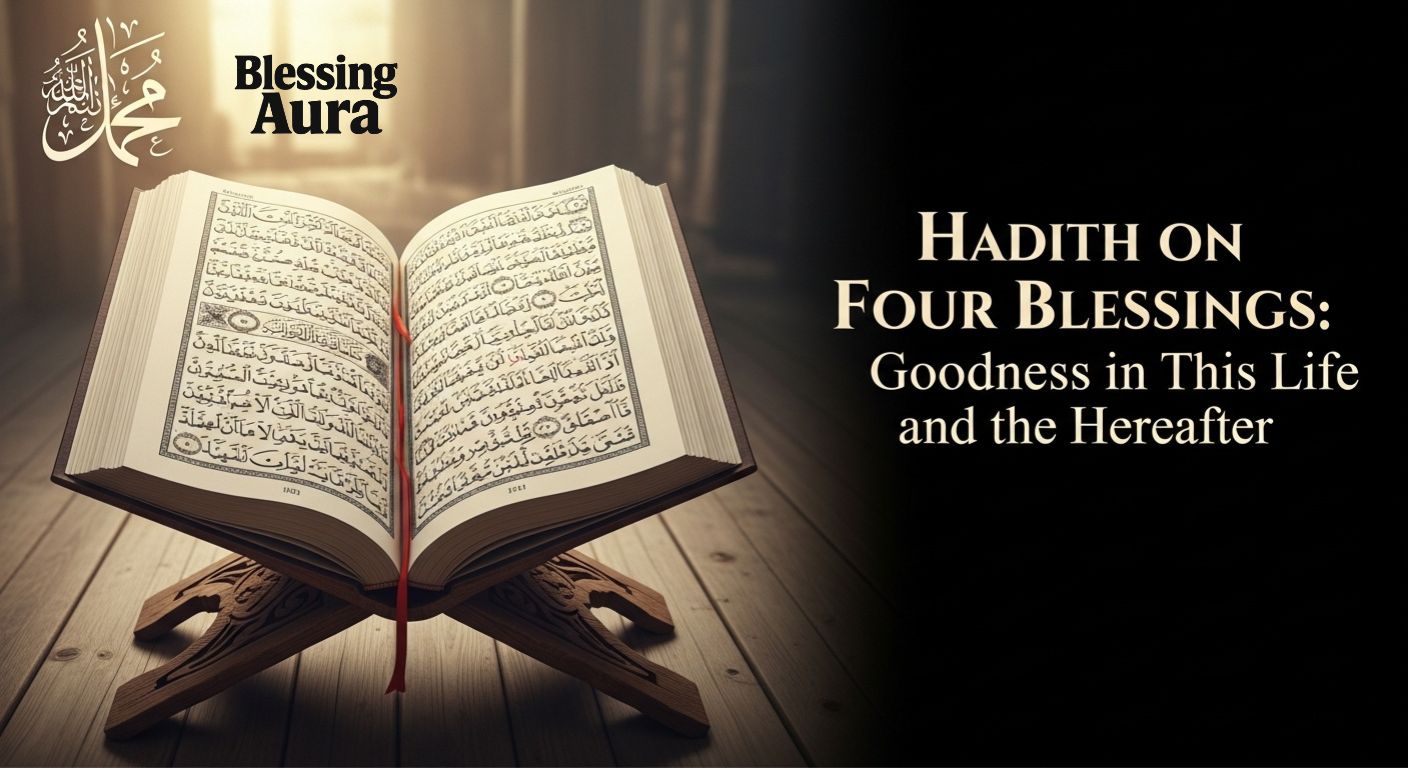The Hadith on Four Blessings: Goodness in This Life and the Hereafter is a timeless guide from the Prophet Muhammad ﷺ. It speaks about a grateful heart in Islam, the remembrance of Allah, patience in Islam, and the value of a faithful wife in Islam who protects her family’s honor and wealth. This narration connects faith with daily actions, showing how inner qualities shape both worldly happiness and eternal reward. The Hadith reminds Muslims that true success is not in wealth alone but in virtues that please Allah. Living by this teaching brings harmony, strength, and blessings in every stage of life.
Introduction to the Concept of Blessings in Islam
Blessings are gifts from Allah that enrich both our body and soul. The meaning of blessings in Islam goes beyond wealth. It includes health, peace, faith, and moral character. The Prophet Muhammad sayings often guide us to see blessings as a trust from Allah, not just possessions.
For Muslims in the USA, understanding Islamic teachings on blessings is vital in a fast-paced life. When you see everything as a blessing, you value it more. This mindset changes how you handle challenges and success. It shapes Islamic guidance for personal character in daily life.
The Hadith on Four Specific Blessings
A famous narration mentions four blessings in Islam that bring goodness in this life and the hereafter. The qualities praised by the Prophet Muhammad include a grateful heart in Islam, the remembrance of Allah, patience in trials, and a loyal spouse.
In this Hadith on gratitude and patience, the Prophet Muhammad ﷺ highlights that these virtues are keys to happiness here and rewards in the next world. Scholars agree that these are examples of spiritual blessings that protect both faith and well-being.
Explanation of Each Blessing in Detail
A Grateful Heart
Having a grateful heart in Islam means seeing every moment as a gift. Gratitude is not only saying “Alhamdulillah” but truly feeling thankful inside. Studies show that people who are thankful live healthier lives. This is why cultivating gratitude in daily life is both a spiritual and practical goal.
Remembrance of Allah with the Tongue
The remembrance of Allah is the soul’s nourishment. The how to remember Allah daily includes reciting short phrases, reading Quran, and reflecting on creation. Even a few minutes of remembrance can bring peace to the mind and light to the heart.
Patience During Bodily Trials
Patience in Islam is not just waiting but accepting Allah’s plan. The importance of patience during illness is emphasized in many Hadith. The bodily trials in Islamic perspective show that tests are pathways to forgiveness and higher rank in the hereafter.
A Faithful Wife Who Protects Wealth
A faithful wife in Islam is a blessing that many overlook. The role of a faithful spouse in Islam is not just love but loyalty. This includes protecting husband’s wealth and dignity. The Islamic advice for marital loyalty shows that a stable home is the foundation of a strong community.
The Link Between These Blessings and Goodness in This Life
These four blessings create balance in life. A thankful heart brings peace. Remembering Allah removes anxiety. Patience builds resilience. Loyalty strengthens relationships. Together, they form spiritual benefits in Islam that make life rich even without material wealth.
When we act on these virtues, we enjoy a smoother life journey. This is how the connection between worldly life and afterlife rewards becomes real. They bring success here and eternal joy in the next world.
How These Blessings Lead to Reward in the Hereafter
The rewards in the afterlife are far greater than any earthly gain. The Quran and Prophet Muhammad sayings tell us that patience, gratitude, remembrance, and loyalty earn paradise. These virtues make your book of deeds shine.
Living by these values ensures the connection between worldly life and afterlife rewards is never broken. You store your rewards with Allah while enjoying peace on earth.
Gratitude and Preservation of Blessings
To keep blessings, show gratitude. Give charity, pray, and help others. These acts protect blessings from being lost. The benefits of gratitude include more contentment and stronger faith.
Ignoring blessings leads to regret. Islamic scholars warn against arrogance and wastefulness. The key is cultivating gratitude in daily life so blessings grow instead of fade.
Lessons for Muslims from This Hadith
This Hadith teaches Muslims to value inner qualities over outward success. True wealth is in the heart, tongue, patience, and family loyalty. These are moral virtues in Islam that never lose value.
For Muslims in the USA, living by this Hadith means balancing career goals with faith. It’s a reminder that spiritual health is as important as financial health.
Related Hadith and Quranic Verses on Blessings
Other Islamic teachings on blessings confirm the message of this Hadith. Verses in the Quran promise increase in blessings for those who are grateful. The Hadith on gratitude and patience are many, showing this is a recurring theme in Islam.
The examples of spiritual blessings in other narrations include knowledge, good friends, and honest livelihood. All are linked to the same core values.
Call to Action for Readers
The Hadith on Four Blessings: Goodness in This Life and the Hereafter is a complete guide for a happy, faithful life. It offers a clear path to success here and in eternity.
Start today. Show gratitude. Remember Allah. Be patient. Value loyalty. These are the qualities praised by the Prophet Muhammad that can transform your life forever.
FAQ’s
What is the Hadith on Four Blessings about?
The Hadith on Four Blessings teaches gratitude, remembrance of Allah, patience, and loyalty. It shows how these virtues bring peace in this life and rewards in the hereafter.
How can the Hadith on Four Blessings guide Muslims in faith?
The Hadith on Four Blessings guides Muslims by showing qualities that please Allah. These values help strengthen faith, build character, and prepare for success in the next world.
Why is the Hadith on Four Blessings relevant for modern Muslims?
The Hadith on Four Blessings remains relevant because it addresses timeless virtues. Gratitude, patience, remembrance, and loyalty create balance, harmony, and purpose in today’s challenging and fast-changing world.
How does the Hadith on Four Blessings connect to the Quran?
The Hadith on Four Blessings aligns with Quranic teachings on gratitude, patience, and faith. It reinforces Allah’s promise of blessings and eternal reward for those who follow His guidance.
What lessons can children learn from the Hadith on Four Blessings?
The Hadith on Four Blessings teaches children kindness, thankfulness, and loyalty. Learning these values early helps them grow into responsible, faithful, and compassionate members of the Muslim community.
Conclusion
The Hadith on Four Blessings is a guide for a happy and peaceful life. It teaches us to have a grateful heart and remember Allah often. It shows how patience in trials brings strength. It also values a loyal spouse who protects the family. The Hadith on Four Blessings connects goodness now with reward later. It speaks to every Muslim who wants success here and in the next life.
Following the Hadith on Four Blessings means living with faith and balance. It means keeping gratitude, patience, remembrance, and loyalty at the center of life. These values improve character and bring Allah’s mercy. The Hadith on Four Blessings is not just history. It is a living lesson for today. Apply it daily. Hold to its message. Let the Hadith on Four Blessings shape your heart and actions always.

Welcome to Blessing Aura! I’m Muhammad Anas, an Digital Marketer and Ebay Dropshipping Expert with 1 year of experience, I help business, brands and store to grow online. My goal is to run ads and sell effective products for everyone, Let’s achieve more together!

